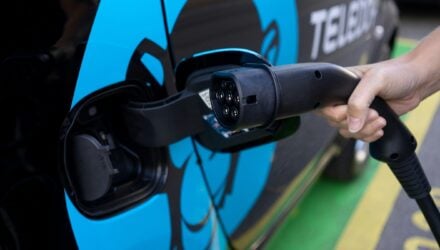The world’s first transformable and dismountable micro electric vehicle has been officially unveiled – and it is made in Britain.
 The if.Micro makes deliveries more environmentally friendly and cost effective. Research by the company behind it, if.Vehicles, has found that it dramatically cut costs and carbon emissions for the last mile.
The if.Micro makes deliveries more environmentally friendly and cost effective. Research by the company behind it, if.Vehicles, has found that it dramatically cut costs and carbon emissions for the last mile.
The last mile is defined as the movement of goods from a transport hub to their final destination – and is typically achieved with vans or light trucks. This means that the last mile is the most expensive, inefficient and carbon intensive part of the process. By integrating the if.Micro into their existing fleets, logistics operators can cut last mile carbon emissions by up to 80 per cent, and delivery costs per parcel potentially by 30%.
Bill Clare, Chairman of if.Vehicles, which has operations in Newcastle, Coventry and Liverpool, said: “Post and parcel companies are under significant pressure to cut carbon emissions while maintaining margins. The if.Micro’s unique capabilities mean that it can deliver benefits in both these areas, above and beyond technologies such as e-cargo bikes and micro EVs.”
The if.Micro can be quickly transformed into a road-legal micro vehicle for post and parcel delivery. Alternatively, it can be turned into a power-assisted trolley for pedestrianised areas. These unique transforming capabilities mean that the if.Micro can be transported in any van or truck, then used for last mile deliveries – effectively turning a commercial vehicle into a mobile distribution hub.
if.Vehicles launched the if.Micro at Freight in the City Expo 2021, held at Alexandra Palace, London.
Bill Clare added: “With the huge rise in online shopping, it is more important than ever that we tackle emissions from last-mile deliveries and help the UK to meet its climate change goals. We have already received substantial interest in the if.Micro and are now looking to secure a logistics partner to refine the vehicle and quantify the operational and commercial benefits through trials.”



















